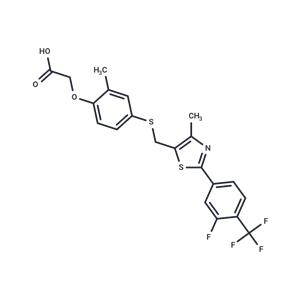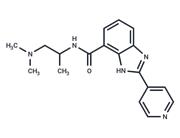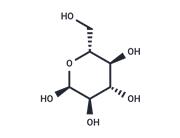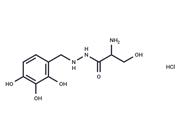| Name | GW0742 |
| Description | GW0742 (GW610742) is an effective and specific PPARδ agonist (EC50: 1 nM/1.1 μM/2 μM, for human PPARδ/α/γ). |
| Cell Research | N/TERT-1 keratinocytes are seeded onto 6-well tissue culture dishes at 3×104 cells per well in Ker-SFM. Twenty-four hours later, cell number is measured with a Z1 coulter particle counter to determine plating efficiency (Day 0). For the remaining cells, medium is changed to Ker-SFM/DF-K, and cells are treated in triplicate with 0.1% DMSO, 0.1 μM or 1 μM GW0742. Cell number is determined at daily intervals, and the remaining cells are retreated with fresh media and treatment each day for up to 6 days.(Only for Reference) |
| In vitro | GW0742 shows activity aganist hPPARα, hPPARγ and hPPARδ with EC50 of 1.1 μM, 2 μM and 1 nM, respectively, in cell based transactivation assay. [1] GW0742 (0.2 μM and 1 μM) significant increases in reporter activity of PPARβ/δ in N/TERT-1 keratinocytes. GW0742 (1 μM) results in significant inhibition in the average number of N/TERT-1 keratinocytes. GW0742 (1 μM) results in an increase in the number of cells in the G1 phase and a decrease in the number of cells in the S phase. GW0742 (1 μM) causes a significant increase in the mRNA encoding ADRP, a known PPARβ/δ target gene, in N/TERT-1 keratinocytes as well as mouse primary keratinocytes. GW0742 (1 μM) results in significantly reduced phosphorylation of retinoblastoma (Rb) and a significantly lower level of p42/44 ERK in N/TERT-1 cells. GW0742 (1 μM) leads to an increase in the mRNA encoding a number of known markers of terminal differentiation including TG-I, SPR1A, K10 and involucrin. [2] GW0742 at 100 μM produces a significant reduction in low-KCl-induced neuronal cell death in cerebellar granule neurons. GW0742 at 100 μM induces a pronounced increase in cell death as measured by LDH release after 48 hr of incubation. GW0742 at 100 μM produces a pronounced increase in c-Jun expression at 6 hours in cerebellar granule neuron cultures. GW0742 at 100 μM increases PPARα-mediated transactivation dependent on the presence of 1.5% BSA in MCF-7 cells. [3] |
| In vivo | GW0742-treatment (0.3 mg/Kg, 10 % DMSO, i.p.) has therapeutic effects on pulmonary damage, decreasing many inflammatory and apoptotic parameters detected by measurement of 1) cytokine production; 2) leukocyte accumulation, indirectly measured as decrease of myeloperoxidase (MPO) activity; 3) IkBα degradation and NF-kB nuclear translocation; 4) ERK phosphorylation; 5) stress oxidative by NO formation due to iNOS expression; 6) nitrotyrosine and PAR localization; 7) the degree of apoptosis, evaluated by Bax and Bcl-2 balance, FAS ligand expression and TUNEL staining. Taken together, GW0742 reduces the lung injury and inflammation due to the intratracheal BLEO--instillation in mice. |
| Storage | Powder: -20°C for 3 years | In solvent: -80°C for 1 year | Shipping with blue ice. |
| Solubility Information | DMSO : 60 mg/mL (127.26 mM)
|
| Keywords | inhibit | GW 610742 | Inhibitor | PPAR | GW 0742 | GW0742 | Peroxisome proliferator-activated receptors | GW-0742 | GW-610742 |
| Inhibitors Related | PHYTOL | (S)-(+)-Ibuprofen | BADGE | Cinnamyl alcohol | Daidzein | Fenofibrate | Pioglitazone hydrochloride | 5-Aminosalicylic Acid | Naringenin | Fisetin | 2,3-Butanediol | Icariin |
| Related Compound Libraries | Nuclear Receptor Compound Library | DNA Damage & Repair Compound Library | Anti-Pancreatic Cancer Compound Library | Anti-Neurodegenerative Disease Compound Library | Bioactive Compound Library | NO PAINS Compound Library | Anti-Aging Compound Library | Bioactive Compounds Library Max | Preclinical Compound Library | Anti-Cancer Active Compound Library |

 United States
United States



